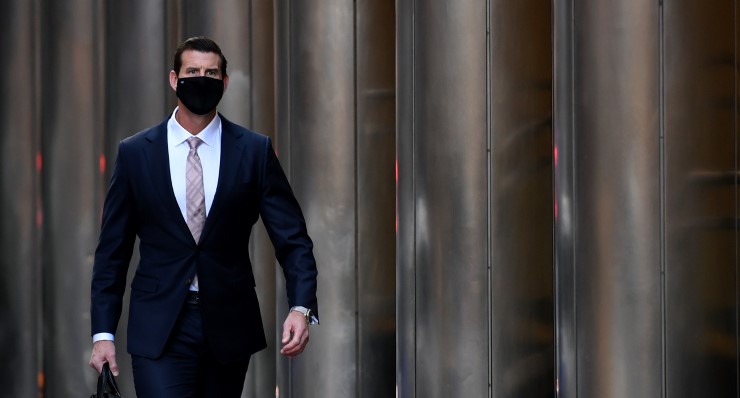
Nine years ago a group of Australian soldiers and their local allies descended on a village in Afghanistan’s Uruzgan Province. It was September 11, 2012, and the soldiers, including Ben Roberts-Smith, had come to the village of Darwan to look for Australia’s number-one target in the war-torn country: a rogue Afghan soldier called Hekmatullah.
Two weeks beforehand, in a “green on blue” incident, the man had murdered three Australian soldiers at a patrol base and then fled.
By the time the soldiers left Darwan, Hekmatullah was still on the run and three local villagers were dead. The events of that day have cast a very long shadow. Almost a decade later, the villagers of Darwan are traumatised and angry, the Australian Defence Force is still trying to find out what happened, and the reputation of Roberts-Smith, Australia’s most decorated soldier, is under a cloud.
Roberts-Smith won the Victoria Cross, Australia’s highest military honour, in 2011. Until 2018, when three newspapers — The Sydney Morning Herald, The Age and the Canberra Times — published reports linking him to alleged war crimes in Afghanistan, he was Australia’s most revered soldier of the modern era.
Roberts-Smith, who strongly denies all allegations, sued the papers and a number of journalists for defamation. The hearing commenced in the Federal Court last month.
The former special forces soldier insists he only killed suspected Taliban insurgents during the heat of battle. The news publications are seeking to rely on a truth defence and have called four witnesses from Darwan to give evidence about what happened that day in 2012. The men have travelled to Kabul, a long distance from their homes, to sit in a small room and give evidence via video link.
It’s been a very challenging week. As foreign forces withdraw from Afghanistan, basic telecommunications and electricity services in Kabul are starting to break down, making the links problematic. The witnesses speak through an interpreter, but the only available court-certified Pashto interpreter lives in Ontario, Canada — when the hearings commence each day at 10.15am Sydney time, it’s 8.15pm in Ontario and 4.45am in Kabul.
Roberts-Smith’s counsel Bruce McClintock SC has been testing their evidence as well as casting doubt on their motives. Several times he has asked them to confirm if they received compensation for the loss of their relatives, money which would have been denied had the deceased men been found to be Taliban. They have also confirmed that travelling and living expenses of their entire families — up to 14 people per family from Uruzgan to Kabul — have been met by the newspapers during the trial. It’s more an assault on their integrity than their words.
Yesterday Darwan farmer Man Gul agreed that he believed the foreign soldiers had been repeatedly cruel to him.
“Yes, it is like that,” he said. “Yes, they killed innocent people and martyred them all.”
“You hate them, don’t you — foreign soldiers?” asked McClintock.
“Yes, it is like that,” Gul said.
Gul said he did not agree with the aims of the Taliban, and that both the Taliban and the foreign forces had perpetrated injustices against the Afghan people. He did agree with McClintock that he regarded foreign soldiers as “infidels”, but rejected a suggestion that in his religion it was “permissible to lie” in some circumstances to infidels.
As the case rolls on, the Taliban are steadily advancing on Kabul, retaking a country has a long history of repelling foreign conquerors: the British in the 19th century, the USSR in 1989, and now the forces of the US and its military allies, earning it the nickname “the graveyard of empires”.
As a saying popularly attributed to the Taliban goes: “You may have the watches, but we have the time.”








Crikey encourages robust conversations on our website. However, we’re a small team, so sometimes we have to reluctantly turn comments off due to legal risk. Thanks for your understanding and in the meantime, have a read of our moderation guidelines.